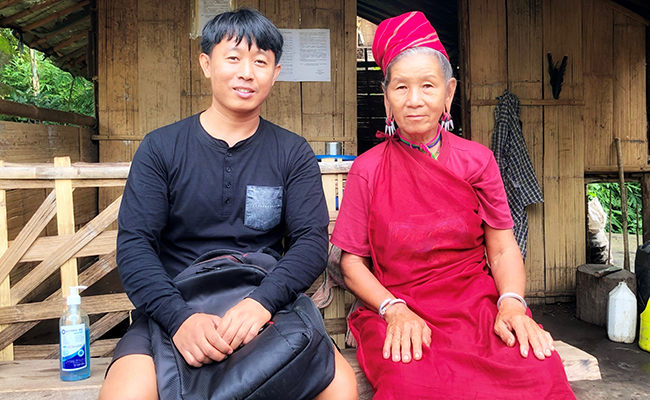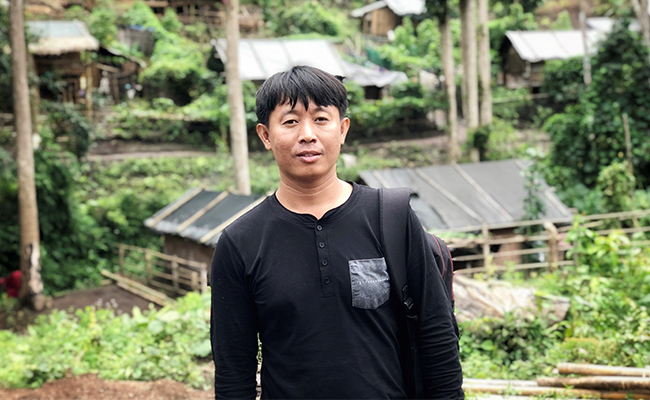
Master of Peace and Conflict Studies candidate John Philip, on the left, at the new Karenni Internally Displaced Persons camp near the border of Myanmar and Thailand. During his recent visit to the camp, he met this woman who had fled the atrocities of the Tatmadaw (military).
Lived experience is contributing in a very real way to one University of Otago student's studies.
Based in his hometown of Loikaw, near the eastern border of Myanmar, Master of Peace and Conflict Studies candidate John Philip is part way through the first year of his course, which he is completing remotely.
Myanmar has been under military control since a coup in February 2021, and Philip is experiencing the effects of that on his friends and family, as they literally fight for their lives and for democracy.
Philip says he chose to study at Otago because it is one of the top-ranking universities in the world, and while he wishes he could come to Dunedin to carry out his studies, he is unable to leave behind his loved ones.
“Coming to New Zealand is one of my dreams, but I can't leave my friends and family, many of whom are fighting on the front lines.”
Following the coup there were three months of peaceful protests, Philip says.
Conflict in Myanmar began when snipers started shooting the protesters in the head.
“About 500 people have died.”
Many young people aged between 15 and 35 are fighting against the military control, and data analysts report there have been about 3000 clashes, he says.
“This is compared to the number of clashes in Syria, Afghanistan and those countries, we have had far more than them.”
He is disappointed by the lack of support and attention the situation has received from the international community.
“The UN is condemning the situation and releasing statements every time there is a noticeable event. We are demanding we need action, not statements.
“How many dead bodies is needed for you take action?”

Philip hopes he will be able to put what he is learning into practise, to help his country find peace.
He is impressed by level of commitment the young people in his country have shown and plans on basing the research section of his degree on their movements.
“Young people are taking the leading role in fighting for democracy, and they are willing to give up their lives, for democracy, freedom and justice. And yet their role is not recognised by any political leaders.
“Young people are our future leaders, and my curiousness is why they're not being recognised; they should be a part of the conversation.”
When Philip was in high school in Myanmar, he and his peers were not very politically aware.
“These young people are in high school, but they are really active, and they know what freedom is, and the word justice.”
Philip believes his master's will increase his knowledge around obtaining peace and enable him to apply it to his country's situation.
“We need genuine peace and sustainable development in our country.”
He came across Otago's Master of Peace and Conflict Studies course through searching online.
At completion of his degree, he plans on becoming an activist and a research fellow.
“My dream is to help the community, especially the oppressed minority groups to raise their voice. I want to help their voice be heard by the people at the top level of this country.”
Kōrero by Koren Allpress, Internal Communications Adviser